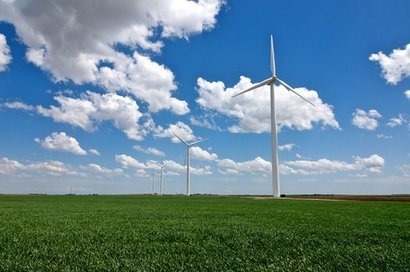
Commercial activity in fossil fuels is increasingly at odds with global actions to reduce the threat of climate change. According to Citcorp, current commitments to reduce greenhouse gas emissions could mean forgoing $100 trillion in fossil fuel revenues by 2050 – representing a huge disruption to global affairs, undermining national budgets and corporate balance sheets. They will also act to expose shareholders, including pension holders and ordinary citizens in resource-exporting states, to a myriad of risks.
The in-depth analysis by Jim Krane, Wallace S. Wilson Fellow for Energy Studies at Rice University in Houston and former Associated Press Gulf correspondent, finds that climate changes risks vary according to different sectors of the energy industry. Demand for oil seems to be insulated from the very immediate risks facing other sectors of the industry, due to its unique role in transportation and the lack of viable alternatives. Citing a study by McGlade and Ekins, he concludes that oil reserves are the least exposed of the three fuels. Just a third of current conventional crude oil reserves would probably be abandoned to meet current global climate change targets, as opposed to half of gas and 82 percent of coal reserves.
However, the threats posed by climate action are already being felt by the coal industry. According to Krane, coal firms have lost a combined 31,000 jobs and $30 billion in share value since 2010 in the US alone. Coal’s fortunes now rest with developing countries, where decisions to seek China-style, coal-led development will be met by increasing international pressure to choose an alternate path. At the other end of the spectrum, climate action seems to have improved the medium-term viability of low-carbon natural gas, given the fuel’s reduced carbon content. Many anti-carbon policies that target coal cede market share to gas, he writes. Longer term, however, gas is vulnerable to replacement by lower-carbon substitutes.
Krane predicts that some businesses, and perhaps even some governments, may not survive the increasing pressures facing the energy industry as a result of climate change actions.
“Unless a technological breakthrough can restrict carbon releases, the fortunes of the fossil fuel industry and the stability of Earth’s climate will be locked in a zero-sum game” writes Krane. “Climate’s gain is the industry’s loss and vice versa. It is clear that carbon-based businesses and economies face increasing impediments to the consumption of their products. Whether through taxes, legal restrictions, moral arguments, favoritism for competitors, or hampered access to financial markets, the industry faces a future that is less accepting of current practice.”
In the same volume of MRS E&S, energy industry veteran Ritchie D. Priddy, who has published more than 200 papers on clean energy and sustainability issues, agrees with the majority of Krane’s thesis. He argues that what he calls the “sustainability movement” has already had a substantial impact on the practices of energy companies and governments and will continue to grow, in spite of the outcry over some countries backpedaling from the Paris Accord.
In other words, the sustainability train has already left the station. Although the pace may slow, sustainability actions will continue around the world regardless of which governments are in place in the US and elsewhere. The main driver for action is peer pressure, he adds, rather than any government action. As sustainability efforts become more ingrained in the daily operations of all companies—primarily through peer pressure—they will, collectively, become more powerful than any international treaty, and something that cannot easily be removed.
For additional information:

